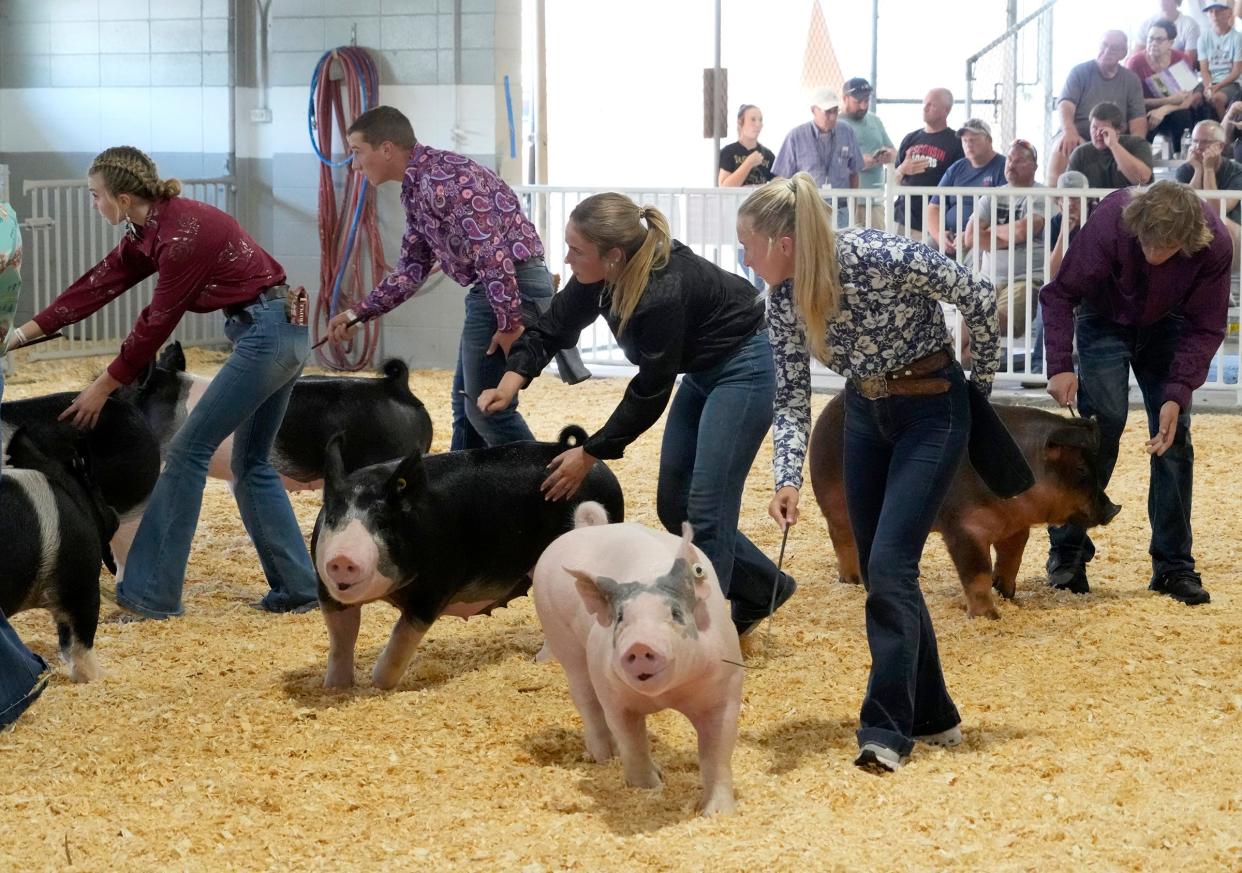Swine flu cases came out of Michigan's State Fair. How to avoid it at Wisconsin's State Fair.

Swine flu precautions are likely on the minds of some Wisconsinites after two people contracted swine flu after visiting pig exhibits at the Michigan county fairs.
No cases have been reported at the Wisconsin State Fair, and staff tell the Journal Sentinel that the swine flu does not affect the animals at the fair.
Here's what you need to know.
What is swine flu?
According to the CDC, swine flu, or swine influenza, is a respiratory disease of pigs. It is considered a zoonotic disease, meaning certain strains can spread to humans. "Flu viruses can spread from pigs to people and from people to pigs. Infected pigs can cough or sneeze, and droplets with virus in them can spread through the air," a CDC press release stated. "If these droplets land in your nose or mouth, or are inhaled, you can be infected. These infections have most commonly been reported after close proximity to infected pigs, such as in pig barns and livestock exhibits housing pigs at fairs."
Does the Michigan county fair swine flu incident affect the Wisconsin State Fair?
As of right now, it doesn't, said one of the Wisconsin State Fair's on-staff veterinarians, Tia Kastenson.
The state fair has not had any cases of swine flu at the state fair this year, and she said it has never had any cases reported, as far as she's aware.
What precautions does the Wisconsin State Fair take to ensure the animals are healthy?
The Wisconsin State Fair follows Department of Agriculture, Trade and Consumer Protection (DATCP) guidelines, according to Kastenson. These are requirements for any pigs being moved around the state. Requirements include a rope test (testing saliva) for respiratory or gastrointestinal diseases within 90 days of movement. The test must be negative before the pigs are allowed to move around the state. Every pig is also examined by a veterinarian at least 30 days before the state fair to ensure the herd is healthy. If it is healthy, they receive a health certificate for the pigs.
Once the pigs arrive at the fair, Kastenson said the on-staff veterinarians check the pig's paperwork and also require a statement from the veterinarian, which DATCP does not require. The pigs are also checked as they are unloaded for any signs of visible disease. If a veterinarian sees something, the pigs are examined and potentially quarantined.
Staff also walk through the barns daily during the state fair. There are five on-staff veterinarians.
Should I take any precautions if I want to see the animals at the Wisconsin State Fair?
Kastenson offered these tips to fairgoers looking to see and interact with animals:
Don't touch the animals: "We discourage it because it's not just swine flu," she said. "There's also bacteria, so you want to avoid that."
Don't eat or drink in the barn: "We don't recommend eating or drinking in the barn because of airborne diseases, and you also don't want straw or hay in whatever you're eating," she said.
Wash your hands: "If you've been in the barn, wash your hands to prevent transmission," she said.
Drew Dawson can be reached at ddawson@jrn.com or 262-289-1324.
This article originally appeared on Milwaukee Journal Sentinel: No cases of swine flu reported at Wisconsin State Fair 2023

